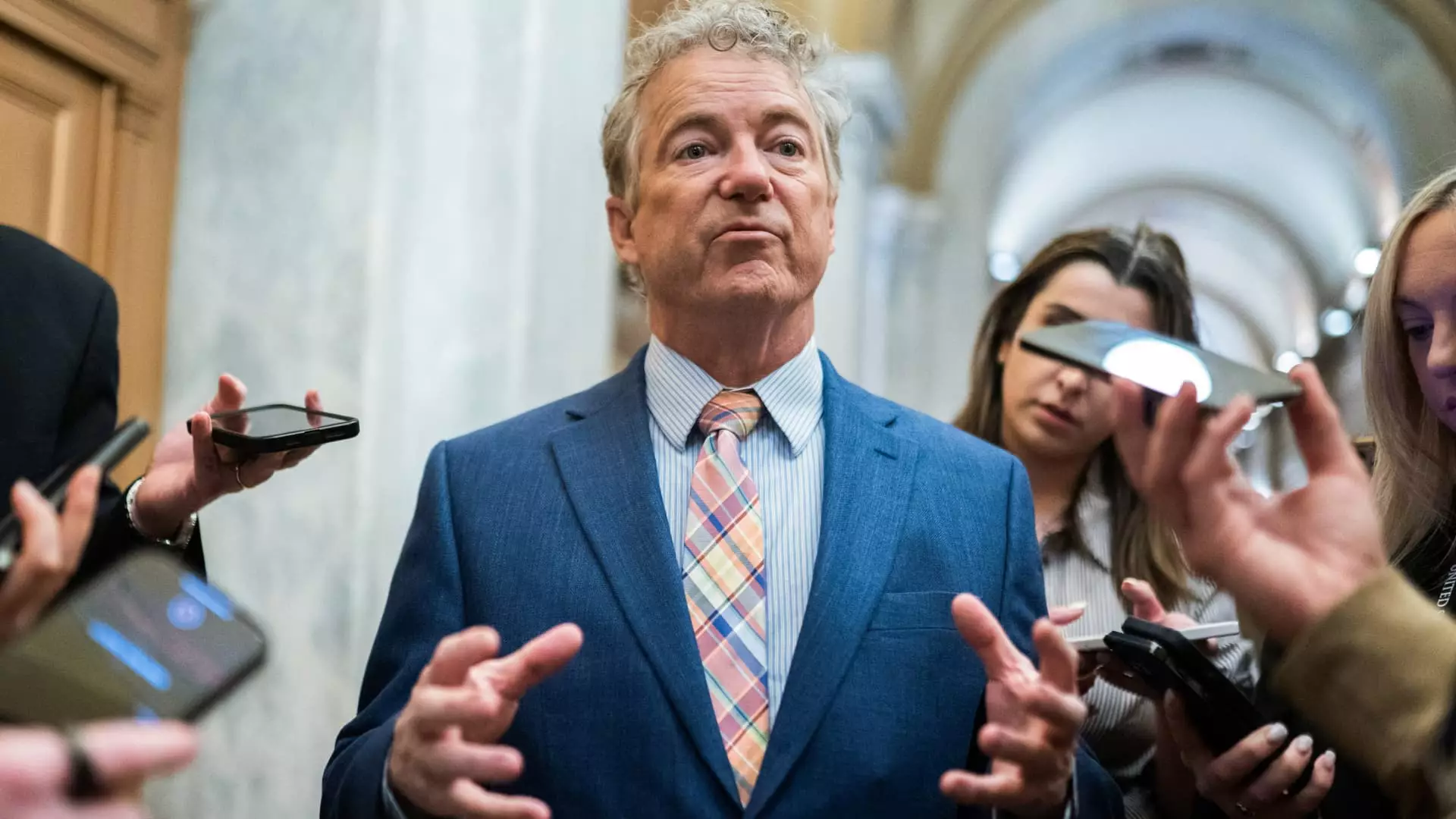In the tempestuous political landscape of the United States, few images have persisted as vividly as that of President Donald Trump clashing with fellow Republicans over fiscal policy. Recently, the spotlight fell on Senator Rand Paul of Kentucky, a prominent libertarian voice within the party. His fierce critique of Trump’s proposed budget—specifically the request for an astronomical increase to the debt ceiling—reveals a fundamental schism in Republican ideology that is difficult to ignore. Paul, who embodies the archetype of a traditional fiscal conservative, found himself chastised by Trump in a deriding interaction that encapsulates the perilous route the GOP is embarking upon.
Trump’s immediate rebuttal to Paul’s stance on CNBC paints a picture of a dysfunctional party where financial irresponsibility is increasingly normalized under the guise of “growth.” When one of the party’s own dares to challenge the doctrine of debt accumulation, the reaction from the leadership is visceral. Trump labeled Paul as someone “who has very little understanding,” a dismissive comment that not only undermines Paul’s principled stands but also emboldens a trend that could see the Republican Party veering away from its fiscal conservatism roots.
The Illusion of Growth
At the heart of Trump’s rhetoric is the promise of “tremendous GROWTH,” a term that has transformed into a verbal talisman for his administration. However, this notion merits scrutiny. The proposed budget—which supposedly aims to expand economic facilities—could lead to a significant widening of national deficits. The idea that borrowing trillions to finance a budget laden with tax cuts signifies economic success is a classic example of wishful thinking.
By disregarding the potential pitfalls associated with deepening national debt, Trump perpetuates a mentality that places short-term benefits above long-term sustainability. The correlation between rising debt and fiscal health is too stigma-ridden for sensible Republicans to overlook, yet the current climate suggests that such fiscal conservatism is being supplanted by frantic maneuvers to galvanize party unity at any cost. This dangerous shift undermines the bedrock of true Republican values.
Paul’s Resistance: An Unpopular Stand?
Interestingly, the backlash against Paul’s position raises questions about political accountability within the party. Trump referred to him as one who “loves voting ‘NO,'” as if dissent against a fiscally irresponsible proposal is a failing rather than a virtue. The senator’s unwillingness to rubber-stamp a $5 trillion debt ceiling—not out of disdain for growth or tax cuts—is emblematic of a critical yet increasingly marginalized viewpoint.
Paul insists he’s not responsible for the debt and offers his support for lower taxes and reduced spending. Yet these rational proposals seem to fall on deaf ears when faced with the siren song of “big growth.” Many in the Republican establishment appear enamored by Trump’s charisma and are thus willing to cast aside their fiscal principles—turning a blind eye to the inequalities that could arise from neglecting the very populations they purport to protect through sound financial governance.
A Party at a Crossroads
The backlash from Trump signifies not just a personal feud but a larger struggle within the Republican Party. As the proposed budget wends its way through Congress, it becomes clear that resources are being increasingly channeled into a framework that marginalizes those advocating for responsible fiscal policy. This is leading to a Congress that can only afford to lose a minimal number of dissenters in order to push an agenda that endangers the nation’s economic stability.
Paul’s opposition might seem like an isolated stance, but it embodies a critical moment for the GOP to reassess its identity. Is the future of the party to chase short-term tax cuts while accruing massive debt, or can it emerge as a champion of sustainable policies that benefit not just their immediate constituencies, but the nation as a whole? The answer has implications that extend far beyond their political future, potentially shaping the economic landscape for generations to come.
As we stand by, watching the fallout from this tumultuous chapter in American politics unfold, it’s evident that the stakes are dangerously high. The GOP must grapple with the reality that its pivot away from fiscal responsibility not only threatens to alienate its base but could also leave a lasting stain on economic stewardship.


Leave a Reply